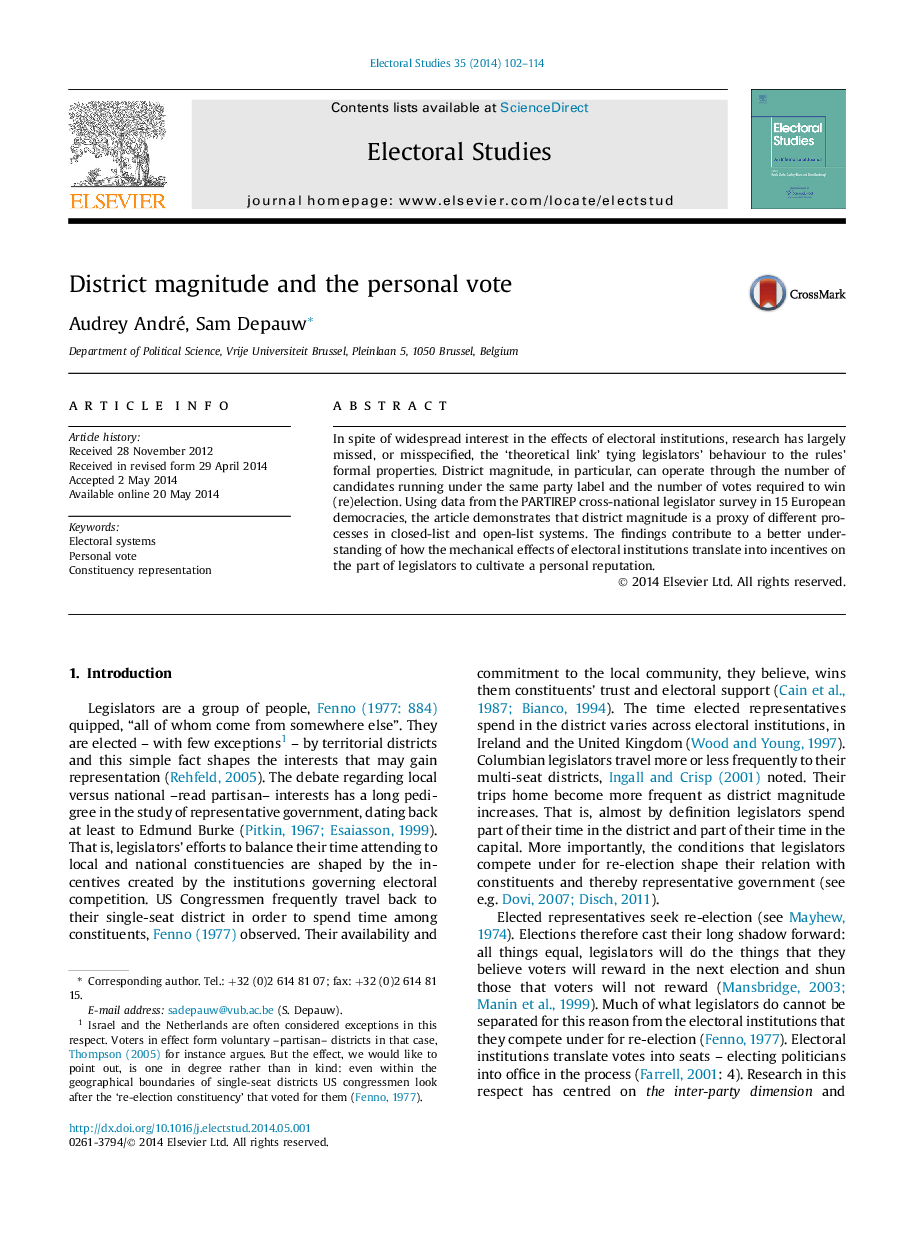| Article ID | Journal | Published Year | Pages | File Type |
|---|---|---|---|---|
| 1051774 | Electoral Studies | 2014 | 13 Pages |
•Research has missed, or misspecified, district magnitude's causal mechanisms.•We use data from a survey among legislators in fifteen countries.•District magnitude has a differential effect on legislators' time spent in the district.•The article disentangles district magnitude's effect in terms of candidates and votes.
In spite of widespread interest in the effects of electoral institutions, research has largely missed, or misspecified, the ‘theoretical link’ tying legislators' behaviour to the rules' formal properties. District magnitude, in particular, can operate through the number of candidates running under the same party label and the number of votes required to win (re)election. Using data from the PARTIREP cross-national legislator survey in 15 European democracies, the article demonstrates that district magnitude is a proxy of different processes in closed-list and open-list systems. The findings contribute to a better understanding of how the mechanical effects of electoral institutions translate into incentives on the part of legislators to cultivate a personal reputation.
